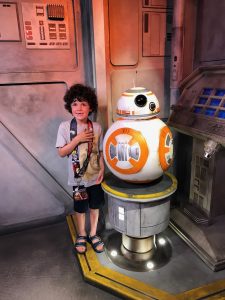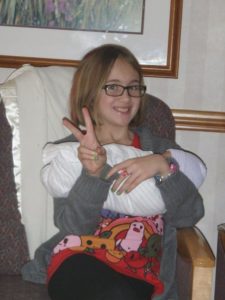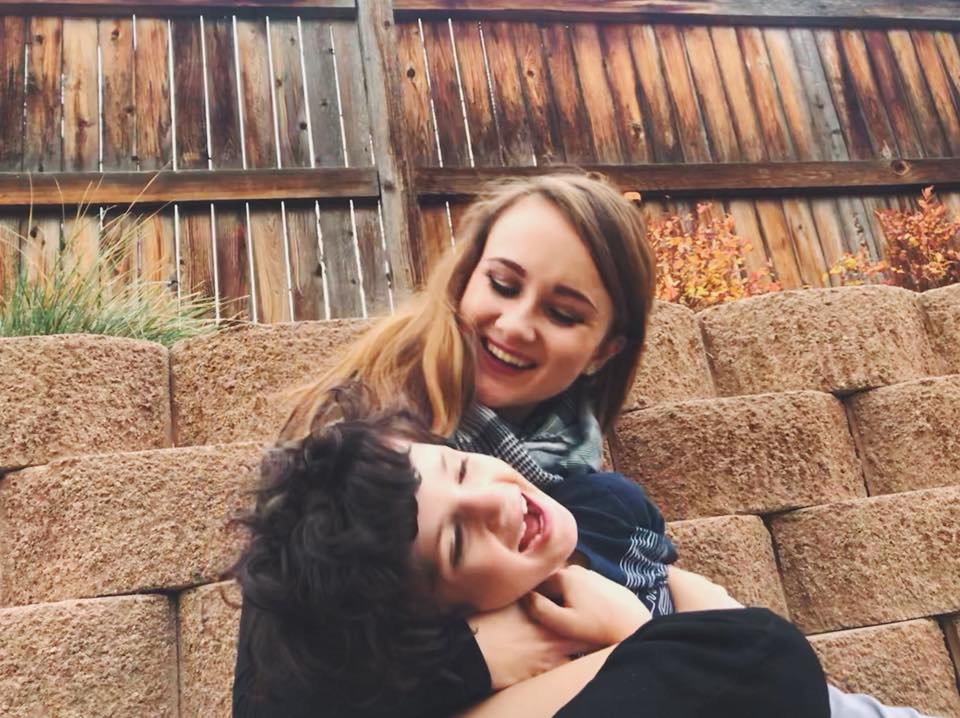My brother, Jackson Ivan Prochnow, was born six days before Christmas in 2009 in my hometown of Denver. I was 10 years old and anxiously waiting to become a sister. I had an infant Santa Clause suit waiting at home for him, and my only sibling quickly became my new fixation. As cliché as it might sound, my brother is the light of my life, and I have always been fiercely protective of and enamored with him, even when he decides to dress up like a minion just to make me suffer.
People always warn you about the “terrible 2s” when it comes to having kids, but for me, 2 years old is when Jackson’s life began to change. Because of some spots on his skin that had started to show up, my dad and stepmom took him to the doctor’s office to find the root of the problem. After this visit, he was diagnosed with neurofibromatosis.
Neurofibromatosis is a group of three conditions — NF1, NF2, and schwannomatosis — that causes the formation of tumors throughout the nervous system. As the condition progresses from NF1 onward, the rarity does as well; 1 in 3,500 people have NF1, 1 in 25,000 have NF2, and 1 in 40,000 people have schwannomatosis. Jackson has NF1, the most common of the conditions.
May is Neurofibromatosis Awareness Month. The most important thing to do is to spread information and awareness of these complicated conditions in order to remain conscious of what afflicted individuals experience. Having a sibling with such a rare condition can seem isolating at points, which makes the month even more important to me.
With the varying kinds of NF-related conditions, patients can suffer from differing side effects, each one with its own degree of severity. Some common problems are scoliosis, learning deficits, café au lait spots—which show up later than birthmarks and are indicators of neurofibromas growing beneath the skin. Some individuals experience nodules in the eyes, and, the biggest and scariest problem, the growth of benign or malignant tumors.

Jackson’s scoliosis grew noticeable around the time he finished kindergarten. You could easily see that his shoulders were misaligned, and he struggled with balance at times. It never seemed to faze him. Jackson was resilient, bitingly funny, and carefree, which helped us to keep our feelings of worry and unease in perspective. Initially, Jackson wore a cast covering his torso to keep his spine from moving more, keeping him from any water-related activities for the majority of a year. Ultimately, because his spine did end up moving more than it should have, he needed a rod inserted into his back, with the goal of aligning his spine over time using the rod.
Admittedly, the thought of my baby brother going into surgery was frightening, but he remained strong and brave. He remarked that he would be like Wolverine, with metal in his body to make him strong. When going in for an MRI to prepare for surgery, he was found to have a tumor on his kidney’s adrenal gland, an indication of neuroblastoma cancer. Neuroblastoma affects 1 in 20,000 people but is most commonly found in children ages 5 or younger. Thankfully, Jackson’s cancer was isolated and did not require additional treatment.
Having a family member, especially a younger sibling, who is sick is an experience that changes one’s life. I found out about the mass lighting up on Jackson’s MRI as my mom and I were driving to Iowa from Colorado for freshman Orientation. When I found out the mass was cancerous, it made me rethink all my plans. My world felt like a balloon punctured by a needle, quickly deflating around me. I was willing to put everything on hold for my brother, to stay home instead of moving 900 miles away. Thankfully, I didn’t need to do so, and seeing Jackson wear Hawkeye gear never fails to make my day a little brighter.
I am extremely fortunate that Jackson’s symptoms are not so extreme or problematic as they could be, and I can’t begin to fathom how it would feel if my brother were experiencing more serious and complex aspects of his condition. The most complicated and frightening part of NF is that the symptoms differ from child to child, which makes it difficult to find treatment options or, hopefully, a cure.
I devoted my time to finding out as much as I could about NF and resolved to inform as many people as I could about the condition.
In my research, I found the NF clinic at Stead Family Children’s Hospital is home to Iowa’s only NF clinic and is nationally recognized by the Children’s Tumor Foundation’s NF Clinic Network. According to the foundation’s website, there are currently only 50 clinics that are part of the NF Network, designated as such because of “their ability to provide specialty care to NF patients and their families.”

My little brother is 8 now, a little boy made up of missing teeth, soccer jerseys, and a mop of curly hair without rival. He is reading the Percy Jackson books and watching the Harry Potter movies with my dad, as I did before him. I’m able to Facetime him either before school or bedtime on most days, and our conversations are always filled with Hamilton songs. Despite his positive attitude and successful maintenance of NF1, I worry about the “what-ifs,” the endless possibilities of things that could go wrong with Jackson as he grows up and his NF progresses.
That’s life with a condition such as NF1, but there are also millions of amazing things that come every day. The future holds both good and bad, and it’s our job to figure out how to react to them. I try to keep this in mind when thinking about my brother. Even if I wish I could take away any of his obstacles, I know that part of being a sister is figuring out how to best help him navigate the chaos.
Throughout my first year at The Daily Iowan, Jackson has asked me to write about him. Well, Nugget, here you go. I love you forever and a day, and am so blessed to stand by you, no matter the circumstances.



